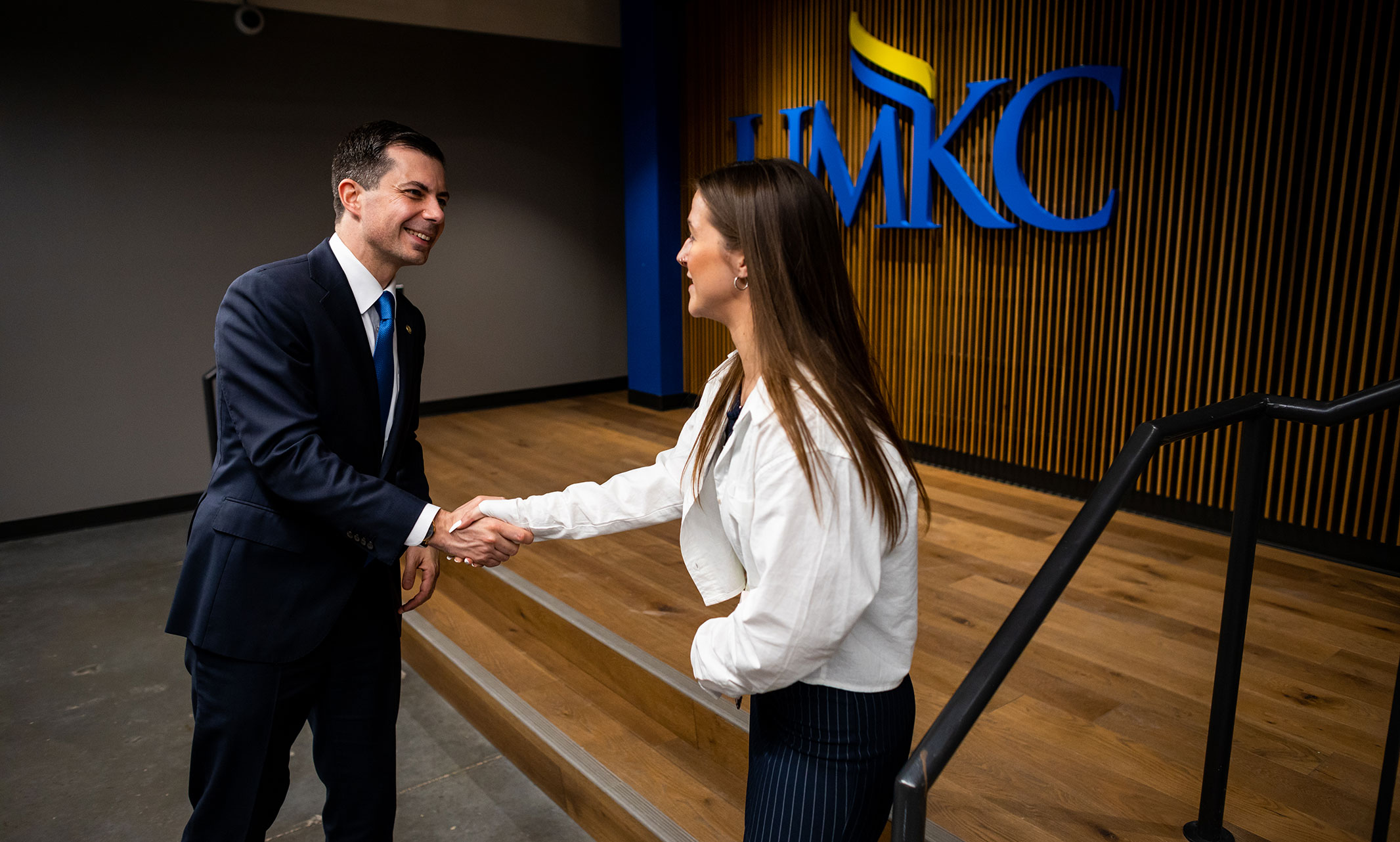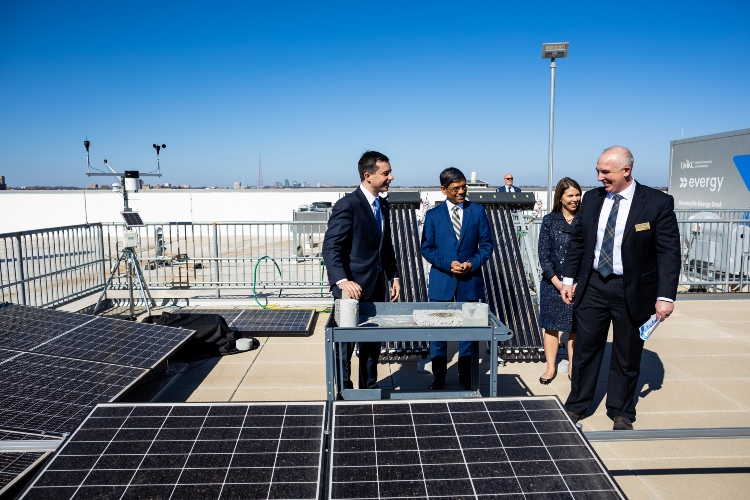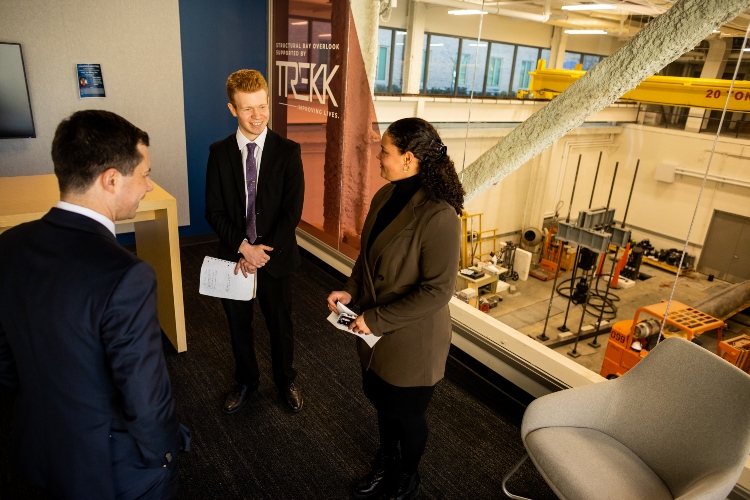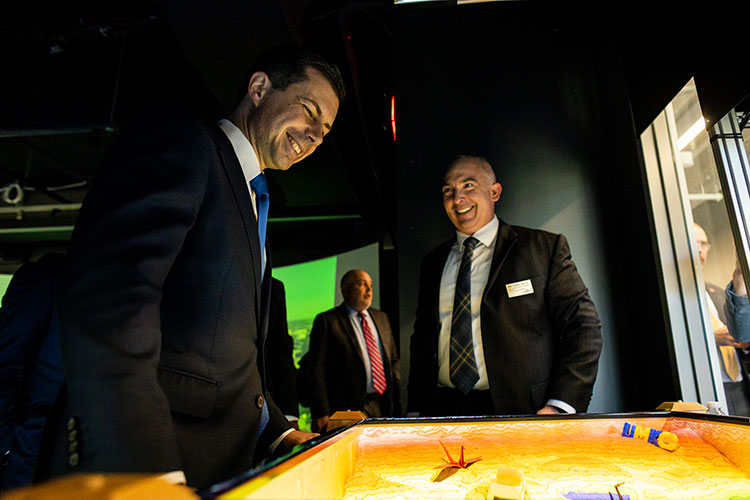U.S. Secretary of Transportation Pete Buttigieg visited the University of Missouri-Kansas City to discuss a new $10 million federal grant awarded to the School of Science and Engineering to develop innovative approaches to improve the sustainability and equity of transportation infrastructure. The grant will provide $2 million annually for five years.
"It's a big deal. To be among those selected really reflects well on this institution," said Buttigieg, who toured labs at the Robert W. Plaster Free Enterprise and Research Center at UMKC while he was in town to visit the new Kansas City International Airport terminal. He discussed the Bipartisan Infrastructure Law-funded grant with students. Robert Hampshire, deputy assistant secretary for research and technology, and chief science officer at the U.S. Department of Transportation, joined him.

The grant was highly competitive: UMKC was among 20 selected from 169 universities to lead Tier 1 University Transportation Centers for underserved and disadvantaged populations. UMKC will work in consortium with Tennessee State University, Texas State University, the University of Louisville and Washington State University, and focus on preserving the environment. UMKC was the only university in the state of Missouri to be selected in this round of funding and was chosen because of its transportation research and project expertise in a city environment. The Plaster Center, from roof to ground floor, is built with labs that work on transportation innovations, including:
- Sidewalk technologies that won’t freeze in the winter and aren’t too hot in the summer
- Improved bus-stop surroundings for all seasons
- Drones that help inspect bridges and deliver packaged goods
- 3D printing that can simulate vehicle parts
- Methods to make more durable concrete for highways and road

“With this grant, our urban, public-research university and its partner institutions will work collaboratively to perform cutting-edge research and to help build an environmentally responsible, 21st century U.S. transportation infrastructure,” said UMKC Chancellor C. Mauli Agrawal. “It is a great opportunity for our students and our community.”
UMKC is integrally involved in major transportation projects across Kansas City:
- Bloch School of Management students consulted on new employees’ transportation needs for the $1.5 billion KCI Terminal opening Feb. 28. Faculty and alumni have served additional roles on the project including construction, communications and art.
- The Kansas City Area Transportation Authority collaborated with the UMKC Center for Economic Information to better understand the economic impact of its zero-fare policy. The UMKC center’s analysis found the regional Gross Domestic Product will increase between $13 million and $17.9 million as a result of ZeroFare KC.
- In two years, the Kansas City Streetcar will have its southern-most stop at UMKC upon completion, extending the existing route from the River Market straight to the university’s doorstop.

Ceki Halmen, UMKC associate professor of the natural and built environment, is program director of the grant. Hired in 2008 at the university, his research focuses on corrosion of steel and the breakdown of concrete, and finding ways to make more sustainable and durable materials to improve quality of life.
“Transportation conveys substantial socioeconomic benefits but at the same time impacts the environmental systems,” Halmen said. “As transportation planners face the evolving challenges of aging infrastructure, funding constraints, climate change and shifts to multimodal transportation systems, guidance is needed on how transportation decisions impact the environment, especially for disadvantaged or overburdened communities.”

